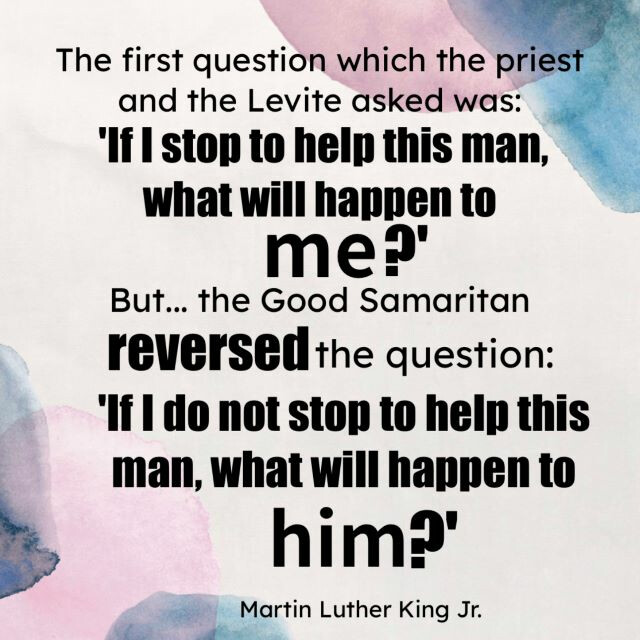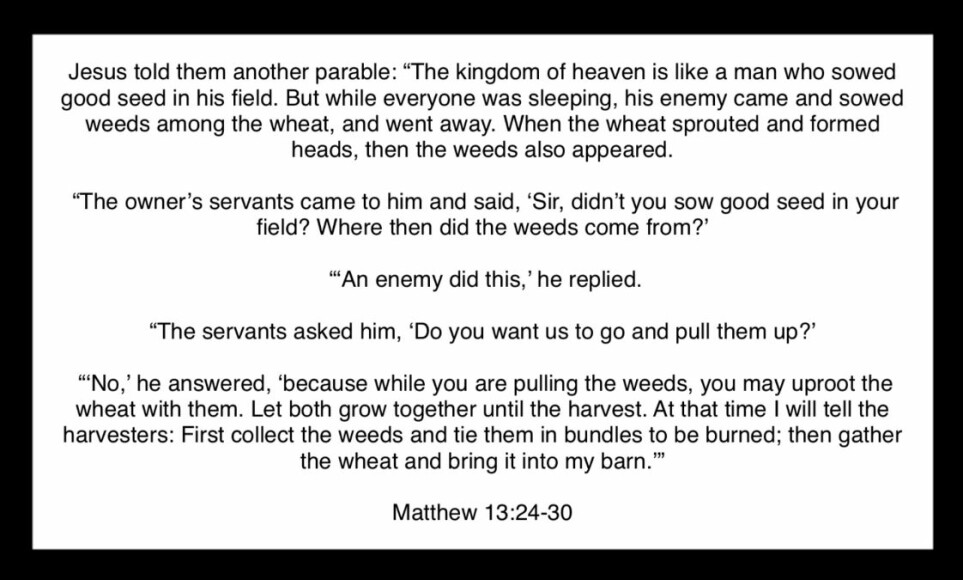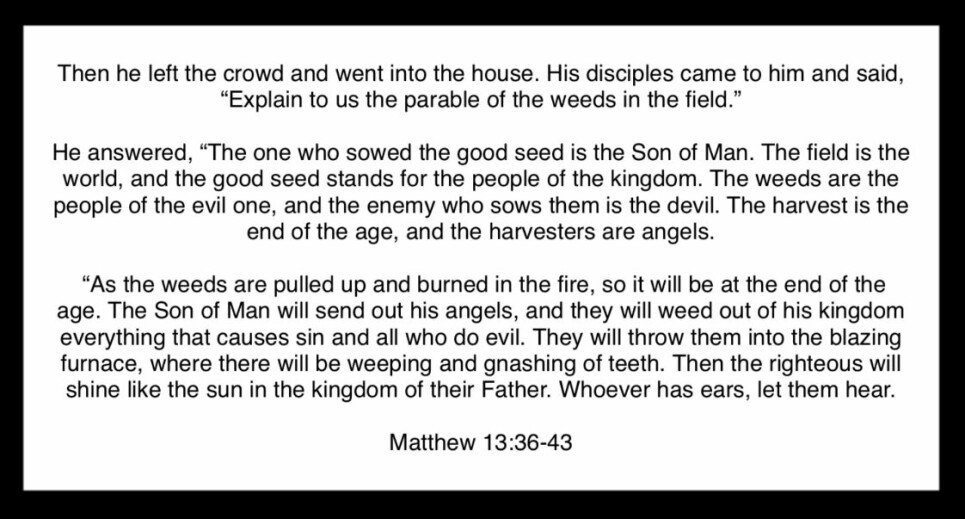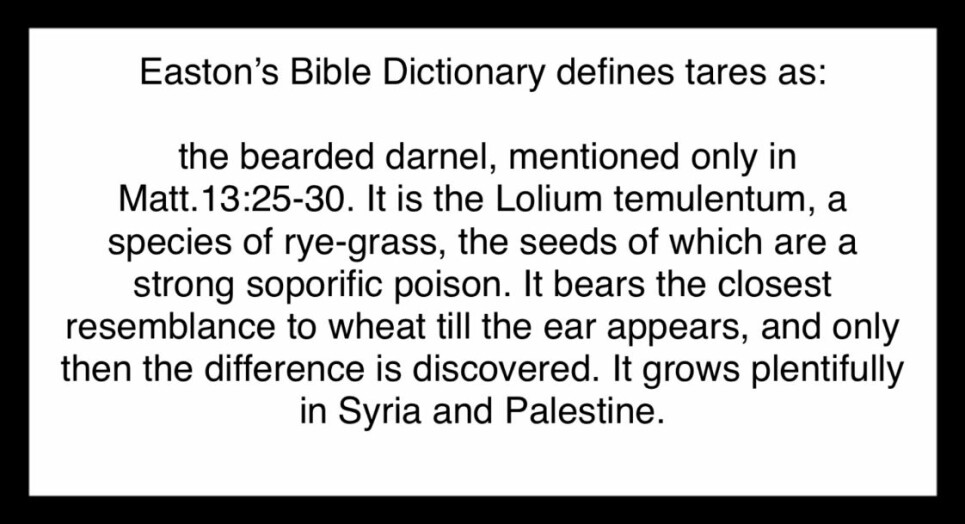A Comprehensive Analysis of the Parable of the Good Samaritan

The Parable of the Good Samaritan
The Book of Luke chapter 10 shares the account of a lawman who challenges Jesus. This particular man stood up and asked Jesus “what must I do to inherit eternal life?” Jesus countered the man by asking, “what is written in the law? How do you read it?” The man responded by paraphrasing both Deuteronomy 6:5:
Love the Lord your God with all your heart and with all your soul and with all your strength.
and Leviticus 19:18:
Do not seek revenge or bear a grudge against anyone among your people, but love your neighbor as yourself. I am the Lord.
Jesus assured the man that he was correct, and let him know that if he were to follow those teachings he would receive eternal life. But the man was not satisfied, he felt the need to question Jesus further. As a means of personal justification, the man asked, “who is my neighbor?”
Jesus thought it best to teach this man a valuable lesson in the form of a parable. He went on to illustrate a story about a man who found himself in an unfortunate circumstance. This man had been traveling from Jerusalem to Jericho when a band of robbers stripped him of his clothes, beat him, and left him for dead on the side of the road.
As the man lay there dying, on two separate occasions, two holy men, a priest, and a Levite happened to come along. Neither of the men stopped to help the hurt man, instead, they opted to cross the road and continue on their way. But then a Samaritan who was traveling down the road saw the man and went out of his way to help him. The Samaritan bandaged the stranger's wounds, carefully loaded him onto his donkey, and took him into town where he secured a room for the man at the local inn where he nursed the man back to health. The next day, the Samaritan paid the innkeeper and requested the innkeeper to watch over the man, and promised he would be back and reimburse the innkeeper for all additional expenses.
Once finished presenting His tale, Jesus asked the law expert:
“Which of these three do you think was a neighbor to the man who fell into the hands of robbers?”
Luke 10:36
To which:
The expert in the law replied, “The one who had mercy on him.”
Jesus told him, “Go and do likewise.”
Luke 10:37
 Let’s Unpack
Let’s Unpack
At first glance, the lesson in Parable of the Good Samaritan may seem pretty obvious: Doesn’t matter who it is, help others and love everyone. But there is more to it than that, so let’s get into it.
What is a Samaritan?
The word Samaritan is used to describe a person from Samaria which was a territory just north of Judea in Northern Jerusalem.
The Moderately Abridged History of the Contempt Between The Jews and Samaritans
When Israel divided, Samaria was within the boundaries of the northern kingdom of Israel, while Judea became the southern kingdom. Both of the kingdoms were led by corrupt rulers. Because of this, wickedness spread across the kingdoms.
God warned His followers to repent and turn away from their immoral ways. The Jews in the southern kingdom found themselves at an advantage, as the temple was within their boundary.
As descendants from the tribes of Ephraim and Manasseh, Samaritans deemed themselves as the true followers of the original Mosaic religion. The Samaritans built their site of worship on Mount Gerizim. They opposed the beliefs and religion of the Jews from Judea.
Sin continued to metastasize throughout the kingdoms, and the people proceeded to shut their eyes to God’s warnings. Because of this, around 721 B.C., the northern kingdom of Israel was overthrown by the Assyrian Empire. Assyrian Pagan Gentiles relocated to the area and soon after, the natives began to intermarry with the Gentiles. Consequently, the offspring produced from these marriages considered themselves Jews.
However, the Jews in Judea unquestionably disagreed. Animosity grew between the Samaritans and those in Judea. Not only did the Judeans not agree with how Samaritans practiced Judaism, but they began to refer to Samarians as mongrels; considering them inferior because they were half Gentile.
 The southern kingdom met its forewarned destruction in 585 B.C. The southern kingdom of Judea was conquered by the Babylonian Empire. The walls of Jerusalem and the temple fell to rubble. Many of the residents were sent to Babylon.
The southern kingdom met its forewarned destruction in 585 B.C. The southern kingdom of Judea was conquered by the Babylonian Empire. The walls of Jerusalem and the temple fell to rubble. Many of the residents were sent to Babylon.
70 years later, Babylon was defeated by the Medes and the Persians. Even though many of the previous residents of Jerusalem had new lives, they were encouraged to return home and rebuild the temple. Many of them did.
As the construction of the new temple began, the people from the original northern kingdom offered their help to build the temple saying:
“Let us help you build because, like you, we seek your God and have been sacrificing to him since the time of Esarhaddon king of Assyria, who brought us here.”
Ezra 4:1
The southern Israelites denied the help:
“You have no part with us in building a temple to our God. We alone will build it for the Lord, the God of Israel, as King Cyrus, the king of Persia, commanded us.”
Ezra 4:2
This angered the Samaritans and others in the northern kingdom. Out of spite, they put together a resistance to impede the construction of the temple by petitioning the Persian kings. Ultimately, the Samaritans did not prevent the temple from being rebuilt, they just threw up some additional roadblocks. They ended up building their own temple on Mount Gerizim. But, subsequently, the pre-existing bad blood amplified.
Approximately in 332 B.C., Alexander the Great vanquished the land and as a result, the land fell under Greek rule. At this time, the Samaritans cooperated with the Greeks, while the Jews rebelled; choosing to remain loyal to Persia. During this time, the Samaritans even denied being Jewish so they would be more readily accepted by their Greek counterparts.
In 113 B.C., conflict once again peaked when the Jews demolished the Samaritan temple on Mount Gerizim. This only fueled the hatred.
By the time Jesus was born, the long-seeded loathing had been plagued with deceitful and malicious misdeeds spanning over generations.
The Justification of the Lawman
In Luke 10:25, the lawman asked Jesus:
“Teacher,” he asked, “what must I do to inherit eternal life?”
When the lawman first posed his question, (“what must I do”) he seemingly eluded God’s laws by implying that inheriting eternal life is achievable of his own accord. Jesus immediately thwarted the man’s attempt by bringing the law into the conversation. Still attempting to justify himself, the man confronted Jesus once again, seeking out the answer to who does not count as a neighbor, and who does he not have to love. After all, the man wouldn’t be expected to love sinners, right? Wrong! However, if Jesus were to specify who, the man could keep the options to a minimum and ultimately modify the law by stating that he does love the people who do count.
The Justification of the Two Holy Men
In the Parable, first, a priest encounters the hurt man. It is widely familiar knowledge that a priest refers to a religious leader. But do you know why a Levite is considered a holy man?
1 Chronicles 23:1-5 reads:
When David was old and full of years, he made his son Solomon king over Israel.
He also gathered together all the leaders of Israel, as well as the priests and Levites. The Levites thirty years old or more were counted, and the total number of men was thirty-eight thousand. David said, “Of these, twenty-four thousand are to be in charge of the work of the temple of the Lord and six thousand are to be officials and judges. Four thousand are to be gatekeepers and four thousand are to praise the Lord with the musical instruments I have provided for that purpose.”
So, both the priests and Levites were temple workers. This fact implicates the underlying reasoning behind the men’s justification of why they neglected to help the man on the side of the road. Per the requirements of the job, men working in the temple were expected to maintain cleanliness. Helping a wounded man could prove to be detrimental in this regard. Leviticus 21 provides great insight as to the priest’s and Levite’s obligations:
The Lord said to Moses, “Speak to the priests, the sons of Aaron, and say to them: ‘A priest must not make himself ceremonially unclean for any of his people who die, except for a close relative, such as his mother or father, his son or daughter, his brother, or an unmarried sister who is dependent on him since she has no husband—for her he may make himself unclean.
Leviticus 21:1-3
He must not enter a place where there is a dead body. He must not make himself unclean, even for his father or mother
Leviticus 21:11
Justifying their actions, both men paid no attention to their neighbor (or, per Matthew 22, the second greatest of all the commandments) and thought it more important to keep clean so they could perform their religious responsibilities.
The Entirety of the Lessons From the Parable
+Consult Your Bible- Despite the lawman’s efforts to rationalize his actions, the first place he turned was to God's teachings when Jesus asked him, “what is written in the law? How do you read it?” Always turn to God and His teachings first.
+Strive to Comprehend What You Read- Seek out the deeper meaning from the messages. Make sure you are not improperly comprehending the message so that it fits your narrative. The lawman knew that he was commanded to love everybody, but he thought, “surely, not everybody counts as everybody.”
 +Listen Intently to God’s Teachings- When you listen and absorb His teachings, you are opening the doorway to beneficial spiritual guidance and growth.
+Listen Intently to God’s Teachings- When you listen and absorb His teachings, you are opening the doorway to beneficial spiritual guidance and growth.
+Eliminate Justification From Your Life- God sees all your actions, he knows your heart. Justifying yourself doesn’t help you in any form. Not only does God know your true intentions, but making justifications prevents personal growth.
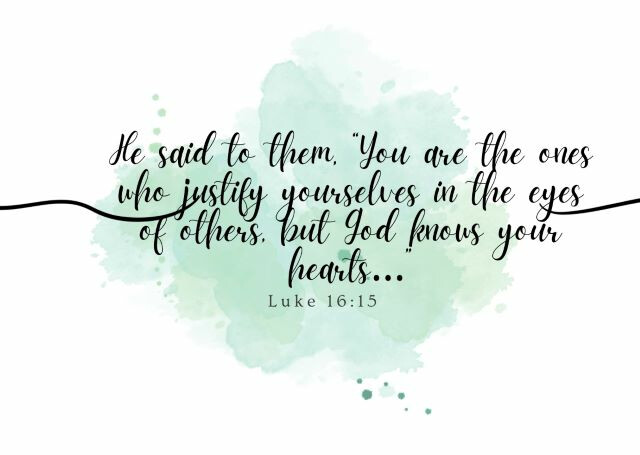 +Be Responsive and Hospitable- Respond with love and compassion to those needing help. If you can, go beyond the bare minimum of support. The Good Samaritan could have only bandaged the man up, but he did more- he took him to the inn. The Good Samaritan could have paid for the one night at the inn, but he did more- he paid the innkeeper for more time and for his help to oversee the man and promised to repay him for any additional expenses. The Good Samaritan exceeded any expectations.
+Be Responsive and Hospitable- Respond with love and compassion to those needing help. If you can, go beyond the bare minimum of support. The Good Samaritan could have only bandaged the man up, but he did more- he took him to the inn. The Good Samaritan could have paid for the one night at the inn, but he did more- he paid the innkeeper for more time and for his help to oversee the man and promised to repay him for any additional expenses. The Good Samaritan exceeded any expectations.
+Don’t Expect Things in Return- Yes, if you follow the example of the Good Samaritan, you will be blessed. Nonetheless, it is important that you do not help others because there are deep-rooted motivations and factors driving you to do so. You need to love and help others because you see their value, you want to aid them, and you want to build them up.
+Steer Clear of Intolerance and Discrimination- Jesus used the Samaritan as an example to jolt those who were listening. Samaritans were viewed as lesser beings and they were despised by the Jews. They were seen as faithless half-breeds who were untrustworthy and unsuitable to be treated civilly. Yet, in a shocking turn of events, Jesus reveals that the Good Samaritan was the good guy, he was the only one upholding God’s law.
 +Be Humble and Receptive- After Jesus relayed the Parable, the lawman conceded that the Good Samaritan was the man who had been a true neighbor to the hurt man. By doing so, the lawman acknowledged his faulty judgment and showed a willingness to learn and challenge his thinking.
+Be Humble and Receptive- After Jesus relayed the Parable, the lawman conceded that the Good Samaritan was the man who had been a true neighbor to the hurt man. By doing so, the lawman acknowledged his faulty judgment and showed a willingness to learn and challenge his thinking.
+Act on God's Words- The last piece of wisdom that Jesus grants the lawman is, “go and do likewise.” Jesus is reiterating that if the lawman wants eternal life, he will need to meet the conditions by doing: inclusively, openly, unconditionally loving all. Words are great, but they need to be backed by your actions.

Parallel of Jesus and the Good Samaritan
Now let’s jump into the symbolism of the Parable!
A man (us) is wounded and beaten (by sin and evil).
A priest and Levite (religious leaders of the old covenants) are incapable of saving the wounded man.
A Samaritan (Jesus) rescues the wounded man.
The Samaritan takes the man to an inn (a Christian church).
The Samaritan then delegates the responsibility and care of the wounded man over to the innkeeper (Christian leader).
The Samaritan promises the innkeeper that he will return (Christ’s return) and will be compensated for his faithful loyalty (the rapture).
The Samaritan footed the bill, and all expenses were on him (the crucifixion).
Plainly put, religious leaders and others of the time simply did not like Jesus. They belittled and mocked Him, questioned His ministry, and ended up condemning Him to death. In John 8:48 the Jews are vilifying Him:
The Jews answered him, “Aren’t we right in saying that you are a Samaritan and demon-possessed?”
Equivalent to the Good Samaritan, all Samaritans, Jesus is persecuted. His miracles, guidance, and love are overlooked by those who hate Him, despite Him satisfying the law. Yet, he continues to show us mercy.
The Fulfillment of a Prophecy
Jesus knew that there wasn’t much time left in his Earthly calling. Even though he had ministered to a Samaritan woman in John 4, and healed the Samaritan leper in Luke 17 (the only one who came back to thank Him), He wanted to share His message with all of Samaria, but we see in Luke 9:51-56 that he was not welcomed:
As the time approached for him to be taken up to heaven, Jesus resolutely set out for Jerusalem. And he sent messengers on ahead, who went into a Samaritan village to get things ready for him; but the people there did not welcome him, because he was heading for Jerusalem. When the disciples James and John saw this, they asked, “Lord, do you want us to call fire down from heaven to destroy them?” But Jesus turned and rebuked them. Then he and his disciples went to another village.
In Acts chapter 1, Jesus shares with His disciples that they will be His witnesses in Samaria. In Acts 8:4-8, His prophecy was fulfilled:
Those who had been scattered preached the word wherever they went. Philip went down to a city in Samaria and proclaimed the Messiah there. When the crowds heard Philip and saw the signs he performed, they all paid close attention to what he said. For with shrieks, impure spirits came out of many, and many who were paralyzed or lame were healed. So there was great joy in that city.
Wrapping It Up
Take it upon yourself to take up every opportunity presented to be a Good Samaritan. Admittedly, at times, it will most definitely be difficult. Some days will be worse than others. There are some people who just irk us. But they are not any less deserving of God's love, or your love. If you stumble, that’s okay. God knows that we aren’t perfect. So, cling to Him and continue working toward change.
 In order to inherit eternal life, we need to be obedient to Jesus’ teachings and follow His example. We need to submit ourselves to His Word, His Actions, and His Love. Ask yourself how you can be a good neighbor. By striving to become a Good Samaritan, we are striving to become Christlike.
In order to inherit eternal life, we need to be obedient to Jesus’ teachings and follow His example. We need to submit ourselves to His Word, His Actions, and His Love. Ask yourself how you can be a good neighbor. By striving to become a Good Samaritan, we are striving to become Christlike.
Read more about the Parables here
 The Whole Passage
The Whole Passage
On one occasion an expert in the law stood up to test Jesus. “Teacher,” he asked, “what must I do to inherit eternal life?”
“What is written in the Law?” he replied. “How do you read it?”
He answered, “‘Love the Lord your God with all your heart and with all your soul and with all your strength and with all your mind; and, ‘Love your neighbor as yourself.’”
“You have answered correctly,” Jesus replied. “Do this and you will live.”
But he wanted to justify himself, so he asked Jesus, “And who is my neighbor?”
In reply Jesus said: “A man was going down from Jerusalem to Jericho, when he was attacked by robbers. They stripped him of his clothes, beat him and went away, leaving him half dead. A priest happened to be going down the same road, and when he saw the man, he passed by on the other side. So too, a Levite, when he came to the place and saw him, passed by on the other side. But a Samaritan, as he traveled, came where the man was; and when he saw him, he took pity on him. He went to him and bandaged his wounds, pouring on oil and wine. Then he put the man on his own donkey, brought him to an inn and took care of him. The next day he took out two denarii and gave them to the innkeeper. ‘Look after him,’ he said, ‘and when I return, I will reimburse you for any extra expense you may have.’
“Which of these three do you think was a neighbor to the man who fell into the hands of robbers?”
The expert in the law replied, “The one who had mercy on him.”
Jesus told him, “Go and do likewise.”
Luke 10:25-37


